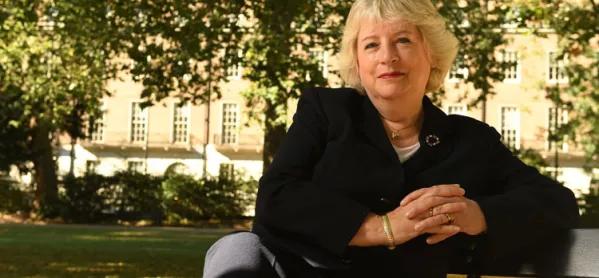The head of the Chartered College of Teaching has urged Ofsted to ensure that its new inspections are based on research evidence that is appropriate to the age of pupils being taught.
Dame Alison Peacock has said Ofsted’s definition of learning in its new inspection framework is based on cognitive load theory, which has been tested on university students but not school-age children.
She also told Tes that there was “very little” in Ofsted’s research base for its new inspections that was based on research of primary school children.
However, she has welcomed the inspectorate’s move to publish the research underpinning its new framework and praised Ofsted’s decision to increase the focus on school curriculum.
Ofsted has published details of the research that it says underpins its new inspection framework - which is placing greater emphasis on the school curriculum.
Ofsted research challenged
In this, it says “learning is at least in part defined as a change in long-term memory”.
Peacock said: “If you look at the definition of learning in the Ofsted document, it talks about the [John] Sweller [the educational psychologist behind cognitive load theory] quote about ‘learning being a change in long-term memory.
“This is a very very narrow view of learning and this comes from cognitive load theory, which is not research based on school-age children.
“I think it is very welcome that Ofsted is using research but if you look at their research base, there is very little that relates to primary school children.
“And six-, seven-, eight- or nine-year-olds learn differently. The way a six-year-old is able to engage in a concept is very different from a nine-year-old.
“Overall, I welcome Ofsted’s approach to the new inspection framework but we have to make sure that we do not have unintended consequences, which would be primary school teachers being judged against research evidence which has never been tested on the age of children they are teaching.”
She encouraged teachers and Ofsted to work with the Chartered College “to ensure that the evidence base is suitable and applicable for the phase under inspection.”
Her comments follow a series of concerns raised about the way Ofsted is proposing to inspect early years providers.
James Bowen, the director of NAHT Edge, has questioned how the inspectorate can assess curriculum by looking at how well children remember in early years.
And there are also concerns that Ofsted’s framework may push schools into narrowing the key stage 1 curriculum.
An Ofsted spokesperson said: “We have based our proposals on a range of evidence from a thorough review of the academic research on educational effectiveness, the learning sciences and our own curriculum research and inspection experience over many years.
“When it takes effect in September, the education inspection framework will be the most evidence-based, research-informed and tested framework in our 26-year history.
“We look forward to receiving Professor Dame Alison Peacock’s response to our consultation.”




